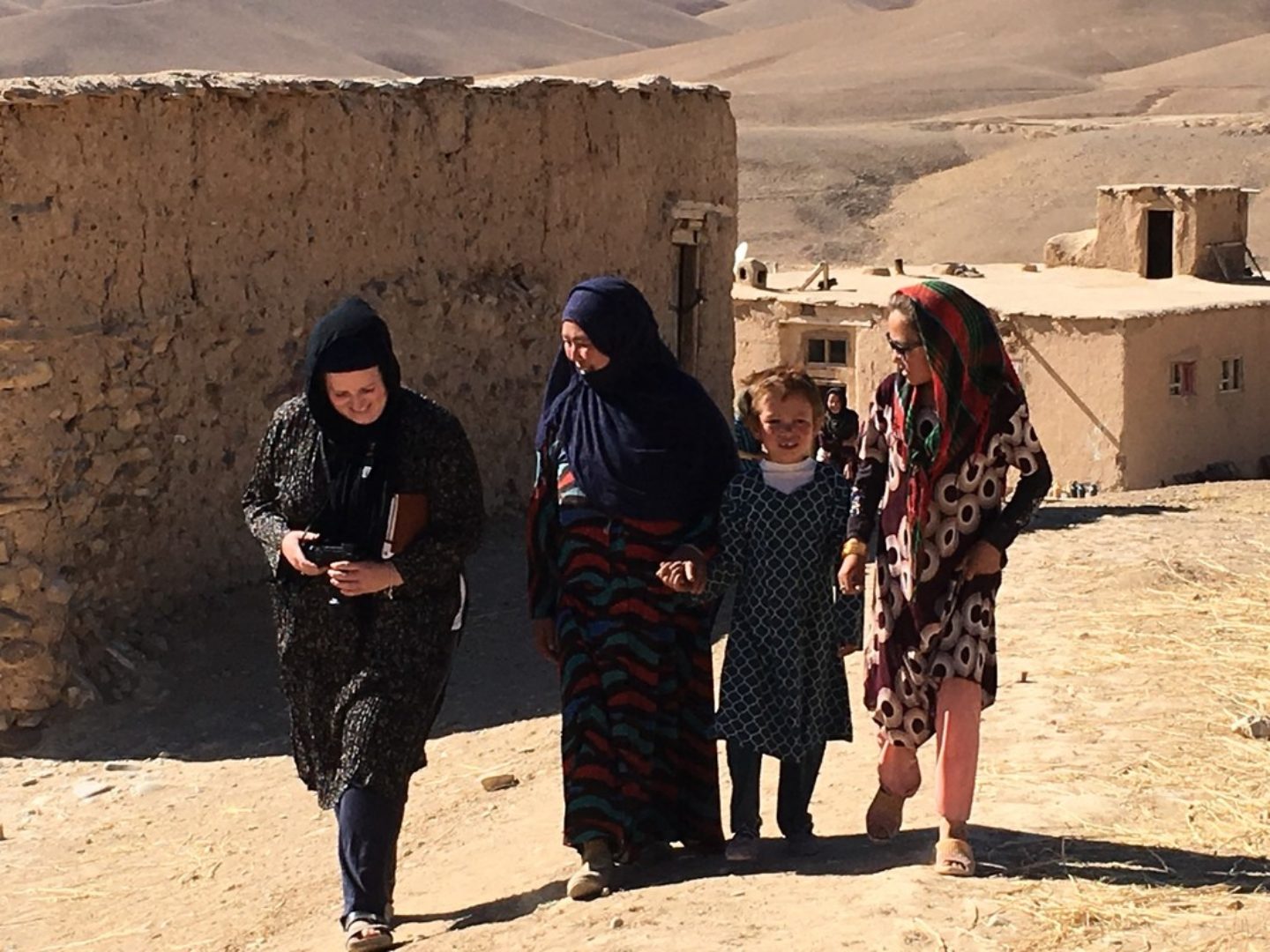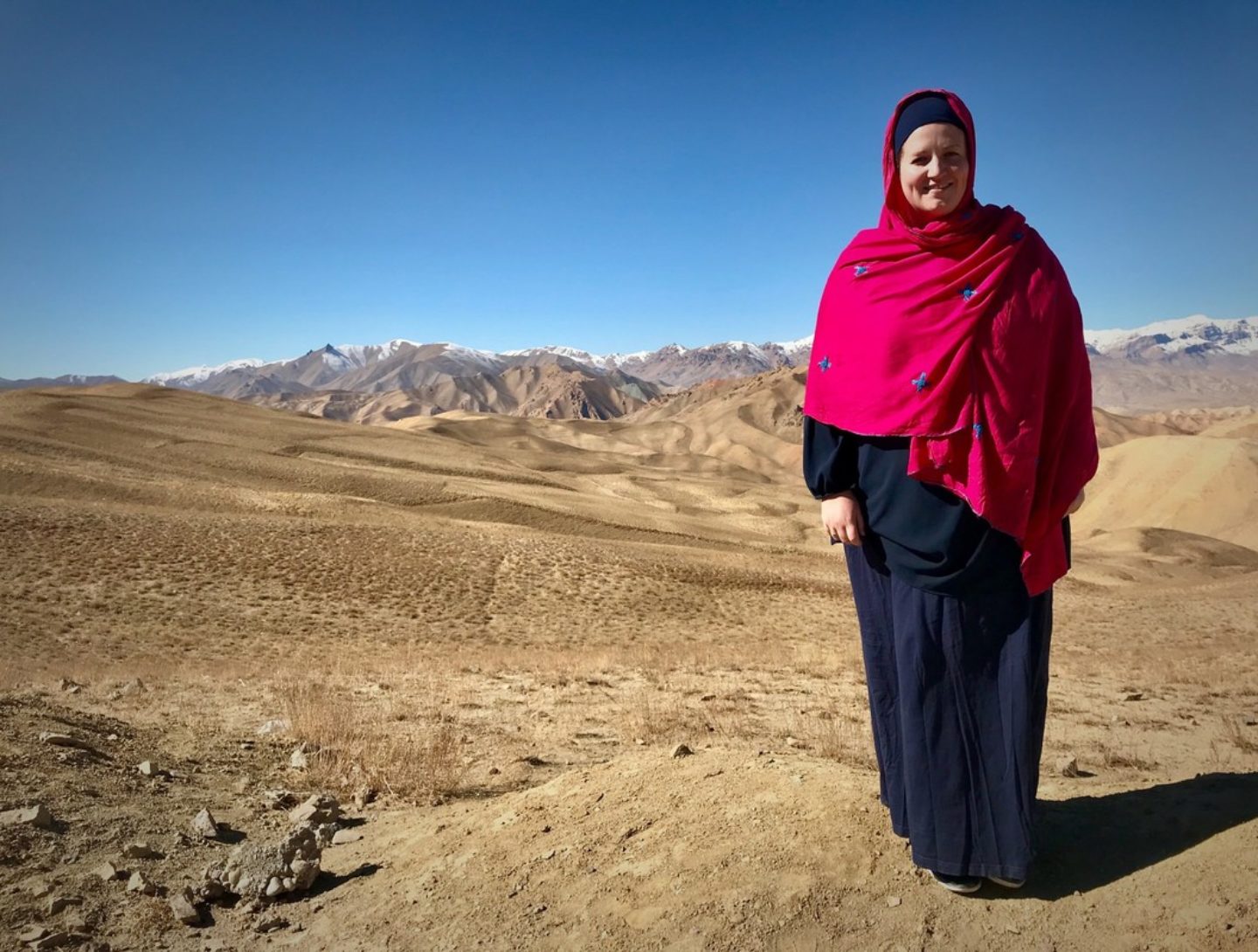Stories from Afghanistan
Four Things I’ve Learnt Being a Female Aid Worker
Bending down to lift my bag from the luggage carousel at Kabul International Airport my headscarf began to unravel, sliding straight down the side of my face and onto the floor. I had landed in Afghanistan ready to take up my first contract with Medair, and this was definitely not how I had anticipated making my entrance. After a tutorial from my female colleagues I was able to master the basics of securing my headscarf, but this was only one tiny step on my steep learning curve while being a female humanitarian aid worker in Central Asia and the Middle East.
Here’s four things I’ve learnt during my time in the region:
Your experience will differ from your male colleagues:
At weddings, birthday celebrations, and even while visiting our projects, as a woman I was invited to share in moments from which my male colleagues were excluded. In Lebanon’s Bekaa valley I sat in the tent of a pregnant Syrian refugee while a midwife from Medair conducted an ultrasound. As the men waited outside, I shared an excited smile with the expectant mother as she heard the sound of her baby’s heartbeat for the first time. Because I’m foreign as well as a woman, I’ve often been welcomed into spaces, such as community elder meetings, which are traditionally seen as male. However, some of my favourite memories are of the times I have been able to occupy the spaces reserved for women. This is side of life doesn’t make the headlines. I’ll never forget the raucous delight of the women teaching me how to dance while we crowded into a tent during an Afghan wedding. Suffice to say, I still have a lot more learning to do!

You’ll have many new brothers looking out for you.
“At Medair we are a family. If you are from other places or you are from here, there is no difference. We are here together and we are Medair” said Tabesh* on our first meeting in Kabul. From graciously guiding me through new societal customs, to checking in on me every hour when I was unwell in the deep-field, my male colleagues are generous with brotherly compassion. As my public escorts, they have endured frequent trips to the bazaar too!
During an overnight visit to a field base in Afghanistan’s Central Highlands, the men wanted to ensure that we, the visiting women, would not need to walk outside to the toilet through the night. Much fuss was made to get the inside toilet working again. The catch? To reach the bathroom we had to navigate an obstacle course of cement bags and supplies used for toilet construction in the communities. The thought was there though!
You’ll learn to adopt a new way of dressing, fast.
While wearing a headscarf in Afghanistan everyday quickly became normality, I had more to learn when I moved on to work in the Middle East Region. It has taken significant effort to master the different clothing styles for not only other countries, but sometimes individual provinces. Thanks to the patient advice and skill from my colleagues, my current field wardrobe ranges from long black abayas, to glittery tunics, to skinny jeans, to burqas. Believe it or not, there came a time when I could barely contain the joy of perfectly matching my headscarf to my outfit!

The women you work with will inspire you.
In many contexts within the Middle East and Central Asia, women are notably less visible in the public space. They’ve had to overcome great challenges to join the workforce. Medair is full of inspirational women that make me forget the hardships I encounter. Latifa* is a nurse in Southern Afghanistan where security constraints can sometimes hamper her ability to access her patients. Reine Hanna has led the development of an innovative project mapping thousands of informal refugee settlements in Lebanon. In Jordan, Sarah is a Health Officer who seeks to apply Medair’s values every day.
It’s been a few years and many cups of chai tea since my headscarf fell to the floor in the Kabul airport. Time and time again, I’ve been moved by the people I have met in these countries which often dominate the headlines because of conflict, and I’ve come to appreciate the distinct privilege of being a woman in humanitarian field work.
This content was produced with resources gathered by Medair field and headquarters staff. The views expressed herein are those solely of Medair and should not be taken, in any way, to reflect the official opinion of any other organisation.
